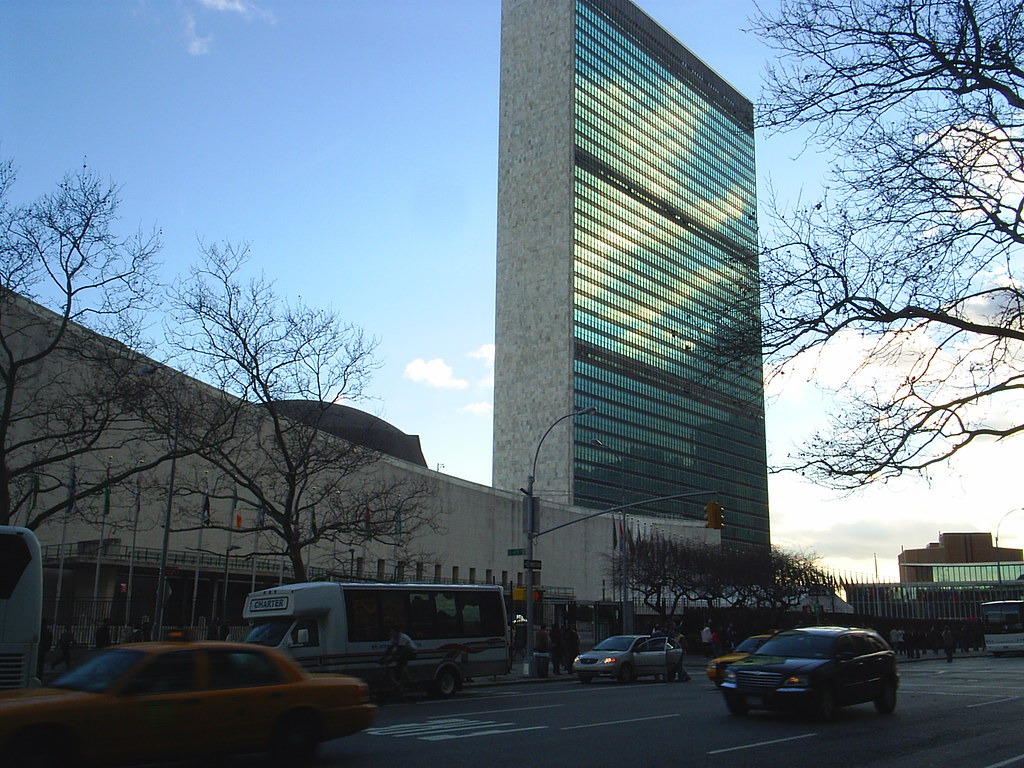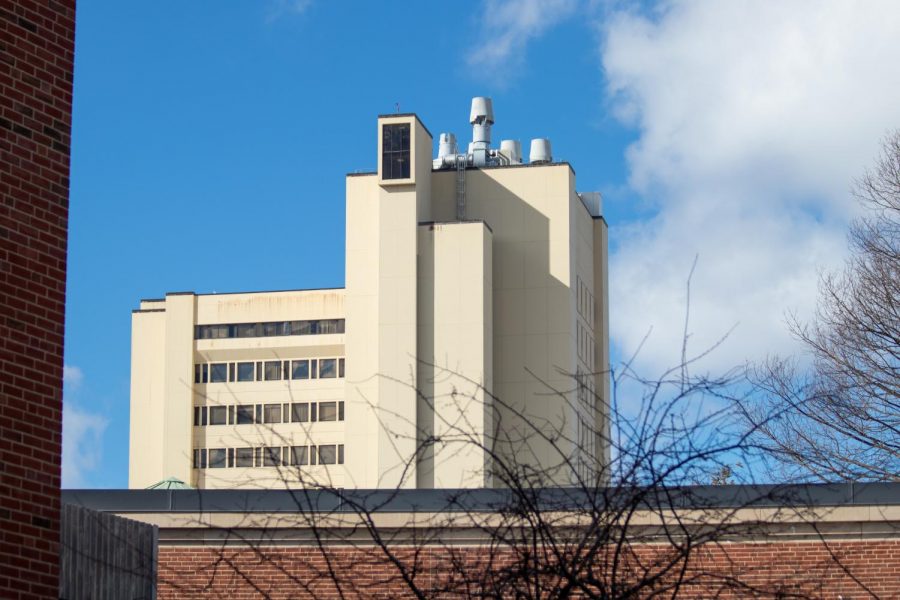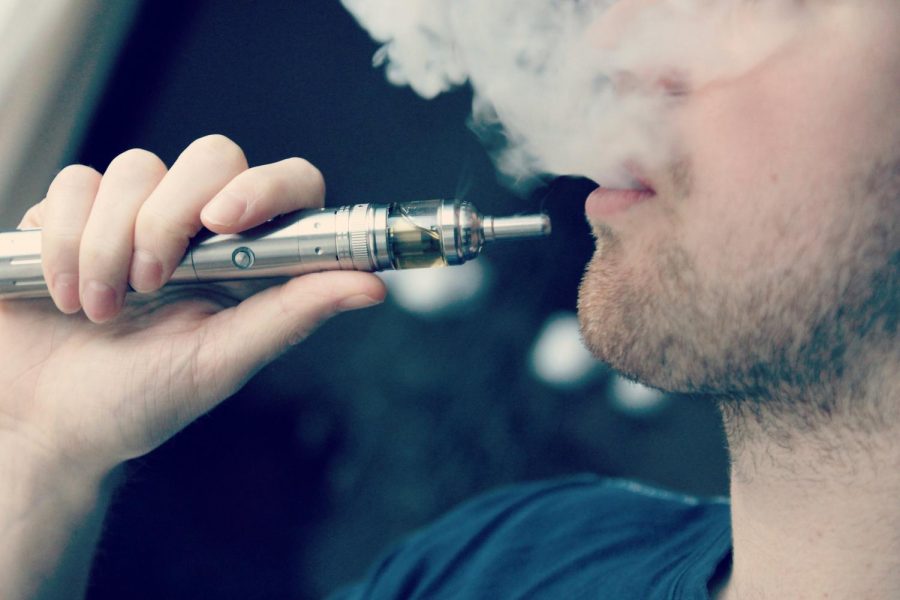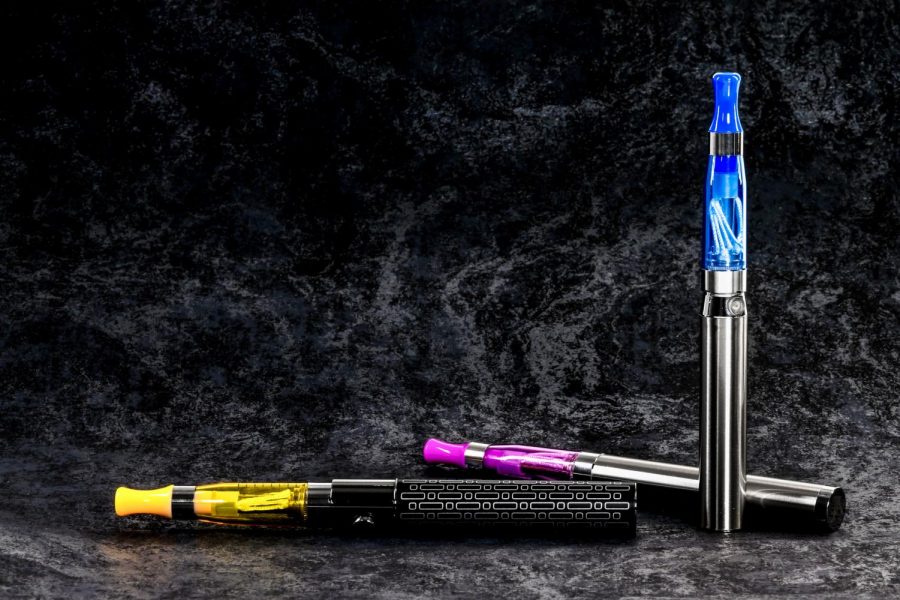On the night of Saturday, April 3, 2010, the University of Massachusetts Police Department broke up a fight outside Pierpont dormitory in Southwest, which included the arrest of one Lamont Thomas, a 20-year-old non-student from Springfield.

A fight breaking out in Southwest may be unfortunate, but not unheard of, particularly late on a Saturday night. But what made the night so disturbing in comparison to other brawls in Southwest is that Thomas was charged with possession of a gun.
Shootings on college campuses are an unfortunate reality in the United States; a small fear in the back of the minds of many college students. Though rare, a place with such a large and diverse population as a university campus always leaves open the possibility of an attack.
The Thomas incident shows that UMass is not immune to such incidents. Guns are banned from all school grounds by Massachusetts General Law, but some see this as being the problem, not the solution. A common response to events, such as what happened with Thomas, is to allow guns on campus so that innocent bystanders may defend themselves from a shooter.
But guns on campus would only end up creating more problems than they would solve. In addition, they would not serve as a deterrent to potential shooters on campus.
Most campus shooters are suicidal; the shooters at Virginia Tech, Northern Illinois and Columbine High School all committed suicide after their rampages. Threatening potential shooters with an armed campus will not deter them because survival is not necessarily one of their goals.
Despite the news a school shooting generates, campuses are safe places; 93 percent of violence against college students occurs off-campus according to a study done by the Department of Justice. In fact, according to a study done by the US department of education in 2001, the homicide rate at colleges and universities in the US is just 0.07 deaths per 100,000 of enrollment in 1999, whereas the overall rate in the US was 5.7 per 100,000 people in 1999. Introducing guns to a campus like UMass would only jeopardize that safety.
One needs only look at the most recent crime log published in the Daily Collegian to see this. According to Wednesday’s Collegian, a student in Northeast Residential Area was arrested just this past weekend after getting into an altercation with his ex-girlfriend. The student went back to his room and proceeded to threaten the young woman with a knife. Imagine the potential consequences if this student had instead been able to return to the altercation with a gun in hand.
The need to defend oneself is important, but a gun is not the way to do this. There are plenty of examples where people at armed locations were the victims of shootings. In 2006, a man named Michael Kennedy attacked a police station in Virginia, killing two officers before being killed by police. This was by trained police officers; an armed student bystander would be considerably less able to intervene.
Besides, it is not a bystander’s duty to fire back at a shooter; this is what the UMass Police Department is for. UMPD is opposed to guns on campus, stating on their website that “the presence of firearms in a college setting can be disruptive and frightening to the members of the community.” As the Thomas incident shows, UMPD can effectively deal with guns on this campus and have received the proper training to do so.
In contrast, student gun owners are considerably less effective. According to research conducted by Harvard University, “students with guns at college are more likely to engage in alcohol-related behaviors that put themselves and others at risk of injury.” They are also more likely than the average student to get in trouble with the police.
Gun control is an effective alternative to deter shootings on campus. Seung-Hui Cho, the Virginia Tech shooter, purchased his guns from a gun shop after successfully completing a background check. However, he was a prohibited purchaser; records regarding his mental health state had simply not shown up in the background check. Legislation has since been passed to tighten background checks and make it more difficult for ineligible buyers to purchase a gun. This will deter potential shooters more than an armed campus would.
In a living and learning community like UMass, there is simply no place for firearms. As the right to own a gun is a constitutionally protected right, students living off-campus certainly have the right to own a gun to keep in their homes. It is not acceptable, though, for those students to then bring their guns to campus. It is not conducive to an academic environment if students and faculty alike are wondering if there are dangerous weapons in the dorms.
The Lamont Thomas case was, thankfully, an isolated incident. By keeping guns off campus and away from UMass, the school will be able to keep it that way.
Billy Rainsford is a Collegian columnist. He can be reached at [email protected].













Fed Up With Liberals • Apr 8, 2012 at 2:30 am
“Most campus shooters are suicidal; the shooters at Virginia Tech, Northern Illinois and Columbine High School all committed suicide after their rampages. Threatening potential shooters with an armed campus will not deter them because survival is not necessarily one of their goals.”
Apparently you have never heard of the literal, physical stopping power of a .45 caliber handgun. The shooter would still die – the question is how many people they kill before they do it.
“Despite the news a school shooting generates, campuses are safe places; 93 percent of violence against college students occurs off-campus according to a study done by the Department of Justice. In fact, according to a study done by the US department of education in 2001, the homicide rate at colleges and universities in the US is just 0.07 deaths per 100,000 of enrollment in 1999, whereas the overall rate in the US was 5.7 per 100,000 people in 1999. Introducing guns to a campus like UMass would only jeopardize that safety.”
How do you know introducing concealed weapons on campus will cause an increase in deaths? Do you have any kind of verified, non-biased statistics to back your claim?
“The need to defend oneself is important, but a gun is not the way to do this. There are plenty of examples where people at armed locations were the victims of shootings. In 2006, a man named Michael Kennedy attacked a police station in Virginia, killing two officers before being killed by police. This was by trained police officers; an armed student bystander would be considerably less able to intervene.”
Death tolls are generally higher in “gun-free” zones. Columbine: 13, 650% higher than the Kennedy attack. Virginia Tech: 32, 1600% higher. Need I go on?
“Besides, it is not a bystander’s duty to fire back at a shooter; this is what the UMass Police Department is for. UMPD is opposed to guns on campus, stating on their website that “the presence of firearms in a college setting can be disruptive and frightening to the members of the community.” As the Thomas incident shows, UMPD can effectively deal with guns on this campus and have received the proper training to do so.”
The Supreme Court has ruled 10 different times that police officers do not have a legal obligation to protect individual citizens. The primary job of the police has been determined to be the investigation/apprehension of lawbreakers and the keeping of public order, thusly the protection of society at large. Individuals not only have a right but a duty to protect the lives of those around them, something the Framers intended for in the Constitution when the 2nd Amendment was laid down.
“In contrast, student gun owners are considerably less effective. According to research conducted by Harvard University, “students with guns at college are more likely to engage in alcohol-related behaviors that put themselves and others at risk of injury.” They are also more likely than the average student to get in trouble with the police.”
I offer two thoughts on this:
1) Police are at best contemptuous and at worst hostile to the idea of an armed citizenry. As a whole, they do not trust us. They think that we are either infants in need of constant guardianship or monsters who seek to constantly spread mischief and pain. Therfore an armed citizen would be subject to more needless scrutiny, detainment, and arrest than someone who maintains the current status quo.
2) The personality that lead an individual to care about gun rights are generally not the personality traits conducive to stroking officer egos.
I can actually be led to agree with you that the nuts and bolts of campus carry could be dicey given the amount of alcohol and bad decisions made on campuses, but the intense anti-gun/big-government slant here made me take you far far far less seriously.
Mike L. • Apr 7, 2012 at 2:57 pm
It’s up to the campus police to stop a shooting? How well did that work out at VT? While the police were trying to find the suspect after the first shootings he was able to go another building and kill at will. While the police were getting organized he was executing people. Did the police stop him? Nope he killed himself.
Of course an armed campus wouldnt deter a shooting. We have an armed public and it doesn’t stop shootings. But an armed campus can mitigate the damage done.
Carrying on campus won’t cause more people to register and buy guns. It will only allow the people that carry off campus to carry on campus.